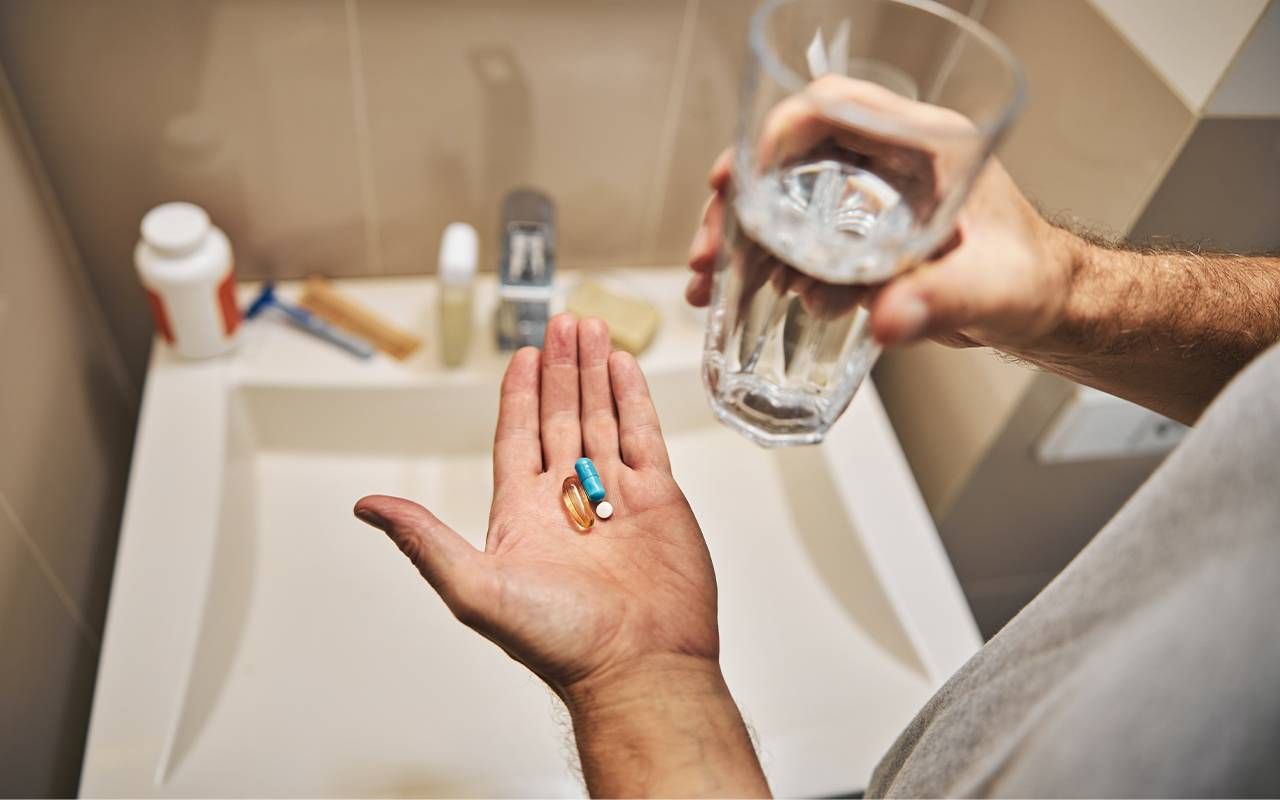Is Vitamin D Key in Managing Mental Health?
A healthy vitamin D level may make all the difference in mood and mental well-being
Vitamin D is a core micronutrient that enhances our health in various ways. Everything from our bones to our muscles, nerves and even our immune system benefits from adequate vitamin D levels. And now, we're learning that vitamin D can affect mental health, too.

Unlike other vitamins and minerals, it doesn't just come from food alone. As humans, we synthesize vitamin D from exposure to the sun. When the sun reaches the skin, it creates a cascade of reactions that help us synthesize this essential micronutrient.
Vitamin D deficiency traditionally manifests through a diagnosis of rickets in children or osteomalacia in adults.
So the sun doesn't solely power our gardens and grass but also influences our health by promoting adequate vitamin D. While we know that getting outside in the sunshine is the best way to get vitamin D into our bodies – does it provide enough to impact our health positively?
And what does inadequate vitamin D look like? The ins and outs of this sunshine vitamin may surprise you.
Symptoms of Insufficient Vitamin D
Vitamin D deficiency traditionally manifests through a diagnosis of rickets in children or osteomalacia in adults. Both conditions cause bones to become frail and muscles to become weak, leading to pain and decreased quality of life, among other serious complications.
But there are different ways inadequate vitamin D levels appear. Vitamin D insufficiency or deficiency can appear in many ways outside of bone or muscle ailments.
A strong relationship between vitamin D and mental health exists, and current research highlights this connection.
For example, the Cleveland Clinic suggests that inadequate vitamin D can also show up as changes in mood or even increased feelings of depression. Additionally, severe deficiencies of this vital micronutrient may damage the heart, lead to seizures and eventually cause death.
Research on vitamin D continues to expand, highlighting the ways this nutrient can influence our health.
The National Institutes of Health recommends that adults ages 19 to 70 strive for 600 IU per day, whereas adults 70 and older should aim for 800 IU per day.
This is the average recommended daily amount of vitamin D, although some individuals with a deficiency may need more to remedy their status. While only seemingly small amounts of vitamin D are required to enhance our health, mighty physical and mental consequences can follow without it.
Vitamin D and Mental Illness
While it may seem unrelated, a strong relationship between vitamin D and mental health exists, and current research highlights this connection. So we're no longer relying on the old wives' tale of getting some sunshine for our health, but seeing patterns in extensive studies across the planet.
A recent study published in 2021 compared the vitamin D status and mental health among a group of women. Differentiating factors like age, level of education, exercise/physical activity, diet, and body mass index (BMI) were all accounted for, evening out the group as a whole.
Researchers found that women with higher levels of serum vitamin D had 42% decreased odds of stress compared to those with inadequate vitamin D or true vitamin D deficiency. This number is enormous; other studies show similar differences between higher and lower vitamin D levels.
Johna Burdeos, Registered Dietitian of Dietitian Johna, explains, "Some studies show a link between low vitamin D levels and seasonal affective disorder or SAD, especially in the winter months when sun exposure is less as the sun is a natural source of vitamin D."
She continues, "Researchers have also noted that groups at higher risk of vitamin D, such as older people (who don't get out as much as younger people and who have diminished ability to synthesize vitamin D from sun) or those homebound who cannot get outside, are also at higher risk of depression."
How to Get More Vitamin D
Time spent outside in the sunshine is the best way to increase your vitamin D status, mainly through small, daily exposures. Getting out offers a multitude of benefits – from breathing in the fresh air and seeing beautiful scenery to enhancing our sleep and, now, managing our mental health more effectively.
Nevertheless, not everyone can increase vitamin D through sunshine alone. Foods and beverages may also be helpful to improve micronutrient status.
If your mental health feels imbalanced, consider asking your medical team about your vitamin D status.
Registered Dietitian Amy Archer of the Wellness RD says, "food sources of vitamin D include fatty fish, fortified foods, liver and egg yolks. Unfortunately, it can be difficult to obtain enough vitamin D from foods alone."
The National Institutes of Health also recommend incorporating fortified milk and breakfast cereals alongside cheese and mushrooms to consume more vitamin D from the diet.
A combination of food, sunlight and even supplementation may all be necessary to reach optimal vitamin D status and potentially reduce symptoms of mental illness, like feelings of anxiety or depression.
Supplementation varies from over-the-counter to prescriptions, so it is best to test your vitamin D status with a licensed medical professional and assess the results and necessary treatment. Your doctor may discuss daily or weekly supplements in addition to sunshine and vitamin D-rich foods, if required.
If your mental health feels imbalanced, consider asking your medical team about your vitamin D status. With increases in stress globally, it's worth examining if vitamin D may be a hidden key in managing mental health and bridging the gap between illness and well-being.


